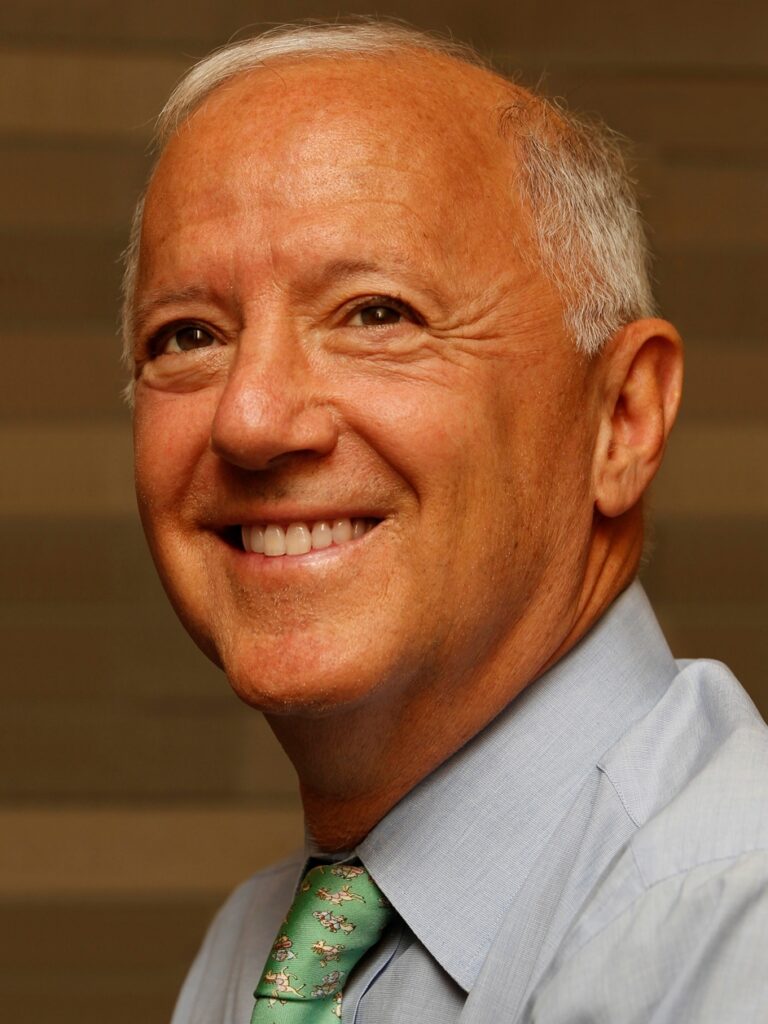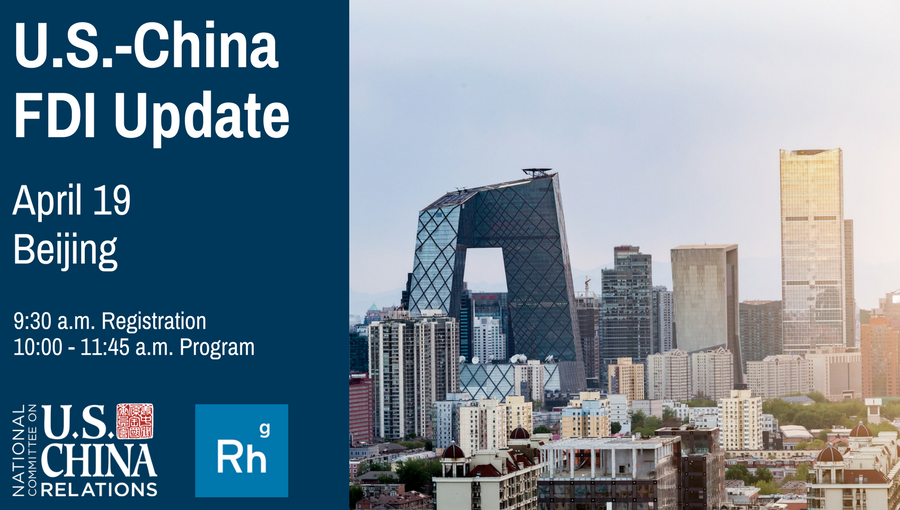Thursday, April 19, 2018 | 9:30 AM EDT - 11:45 AM EDT
Yale Center Beijing |, Beijing
After reaching a record $60 billion in 2016, foreign direct investment (FDI) flows between the United States and China have been squeezed into a diminished position by forces on both sides of the Pacific. In 2017, Chinese FDI in the United States dropped by more than one-third as Beijing re-imposed capital controls and Washington toughened screening of high-technology acquisitions; the value of newly announced transactions dropped by more than 90%. The outlook for 2018 is more uncertain still. President Trump has designated China a strategic competitor, a label not applied since 2000, and Washington is contemplating a disruptive array of more restrictive China policies to respond to national security concerns and the perceived lack of reciprocity, including greatly intensifying the investment screening process.
On April 19, the National Committee and Rhodium Group hosted the Beijing launch of two studies that will shape the public debate on these urgent topics: Two-Way Street, the definitive analysis of U.S.-China FDI trends from 1990 through 2017; and New Neighbors, the seminal analysis of local impacts from Chinese FDI across every U.S. congressional district. With 12 months of brand new data and a number of recent policy developments in both countries, the report’s authors provided a thorough and timely presentation of research on U.S.-China FDI, followed by a panel discussion with legal and business leaders.
This program is part of the U.S.-China FDI Project, a multi-year research initiative that aims to provide greater transparency on FDI flows between the United States and China, led by the National Committee on U.S.-China Relations and Rhodium Group, in partnership with Yale Center Beijing.

Thilo Hanemann
Report author Thilo Hanemann is director of Rhodium Group’s cross-border investment practice. His research assesses new trends in global trade and capital flows, related policy developments, and the political and commercial dynamics of specific transactions. Mr. Hanemann’s most recent work focuses on the evolution of China’s international investment position, and the economic and policy implications of this new trend. He is a frequent speaker and commentator on China’s outward investment and has published numerous reports and articles on the topic. He is also a senior policy fellow at the Mercator Institute for China Studies, Europe’s biggest China think tank, located in Berlin.

Kenneth Jarrett
Kenneth Jarrett has been president of the American Chamber of Commerce in Shanghai since September 2013. Prior to that he was the Greater China Chairman for APCO Worldwide, a Washington-based public affairs consultancy from 2008 to 2013, and before that a U.S. diplomat from 1982 to 2008. During his 26-year diplomatic career, his postings included consul general in Shanghai, deputy consul General in Hong Kong, and director of Asian Affairs at the White House National Security Council. He also served in Beijing, Chengdu, Singapore, and had several assignments in Washington, D.C. Mr. Jarrett has degrees from Cornell University, Yale University and the National War College. He is the recipient of the Magnolia Award (Silver) from the Shanghai government and is a member of the National Committee on U.S.-China Relations.

Stephen A. Orlins
Stephen A. Orlins has been president of the National Committee since 2005. Prior to that, he was the managing director of Carlyle Asia and the chairman of the board of Taiwan Broadband Communications, one of Taiwan’s largest cable television and high speed internet providers. Prior to joining Carlyle, Mr. Orlins was a senior advisor to AEA Investors Inc., a New York-based leveraged buyout firm, with responsibility for AEA’s business activities throughout Asia. From 1983 to 1991, Mr. Orlins was with the investment banking firm of Lehman Brothers where he was a managing director from 1985 to 1991. From 1987 to 1990, he served as president of Lehman Brothers Asia. From 1976 to 1979, Mr. Orlins served in the Office of the Legal Advisor of the United States Department of State, first in the Office of the Assistant Legal Advisor for Political-Military Affairs and then for East Asian and Pacific Affairs. While in that office, he was a member of the legal team that helped establish diplomatic relations with the People’s Republic of China. Mr. Orlins is a magna cum laude graduate of Harvard College and earned his law degree at Harvard Law School. He speaks Mandarin Chinese and is a member of the Council on Foreign Relations.

Daniel H. Rosen
Report author Daniel H. Rosen is a founding partner of Rhodium Group and leads the firm’s work on China. Mr. Rosen has more than two decades of experience analyzing China’s economy, corporate sector and U.S.-China economic and commercial relations. He is affiliated with a number of American think tanks focused on international economics, and is an adjunct associate professor at Columbia University. From 2000–2001, Mr. Rosen was senior adviser for international economic policy at the White House National Economic Council and National Security Council. He is a member of the Council on Foreign Relations, and board member of the National Committee on U.S.-China Relations.

Lester Ross
Lester Ross is the partner-in-charge of WilmerHale’s Beijing office where he represents foreign companies in their strategic expansion in China through direct investment and mergers and acquisitions. He also has extensive experience representing foreign banks and corporations, including Chinese entities, in their expansion in the United States. As a former member and vice chair of the Board of Governors, former general counsel and current chair of the Policy Committee and the Insurance Forum of the American Chamber of Commerce – People’s Republic of China, Mr. Ross is a longstanding leader of the American business and legal communities in China. He has also published extensively on business practices, public policy, and environmental issues in China.
